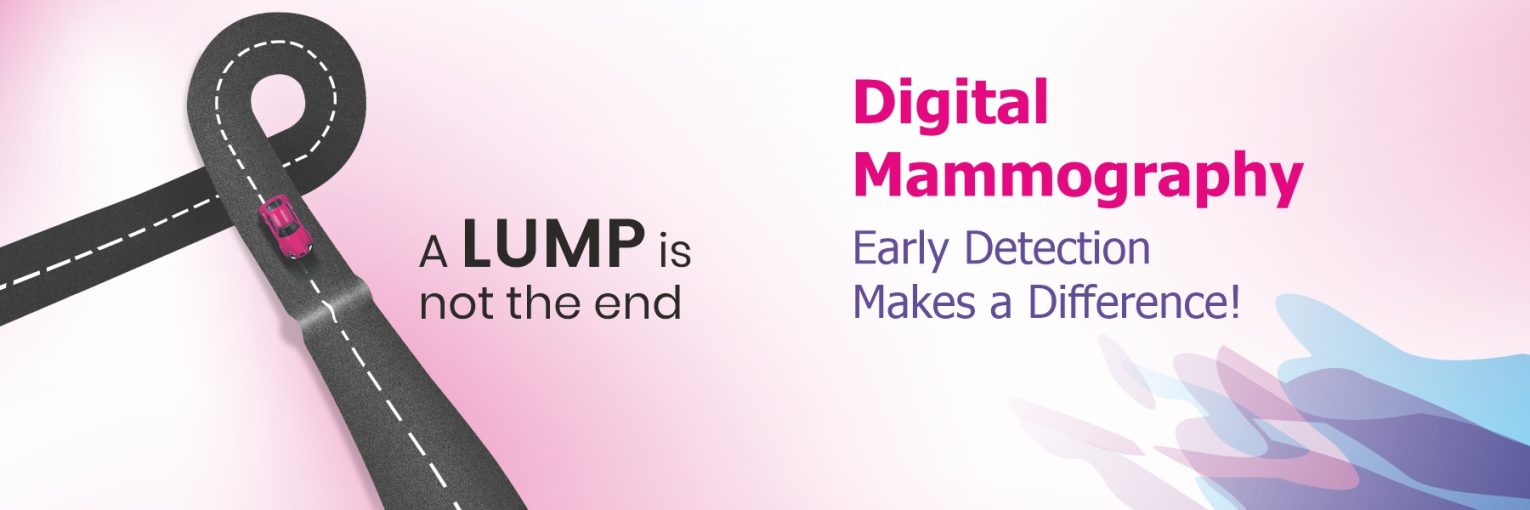Why Mammography is Must for Women above a Certain Age?
A recent study suggests mammography scans done at 30 can be favourable for women who have had a medical family history of breast cancer. But specialists say mammography may not be as effective for women in this age group. If you are a young woman in 30s then other techniques like personal examination would be far more successful in detecting lumps. In case you find anything that would be worrying, consult a doctor immediately.
What is Mammography?
Mammography is a technique used to detect lumps and other symptoms of breast cancer in women. The American Cancer Society recommends mammography for middle-aged women. Due to lower immunity, hormonal imbalances and menopause, women post 45 are at a high risk of getting breast cancer. This is not to say that younger women are safe from the ailment. Cancer can get aggravated at any age, depending on the kind of atmosphere you’re exposed to and the kind of lifestyle you lead. We would recommend women to get yearly mammograms from age 45, then every other year starting at age 55.
Breast cancer can affect fertility, cause hormonal imbalances and other problems in the female body. Women under 40 are equally at risk of being affected by breast cancer. Only there is no set detection technique or diagnosis for the same. Don’t be complacent, breast cancer is very difficult to detect. Often it is too late for the patient.

Need for Mammography
In mammography, breast density is a term that doctors use to refer to the expanse of parenchymal tissue in a breast. The process also checks if the amount of parenchymal tissues is equivalent to fatty tissue in a breast. In the mammography scan, the parenchymal tissues look white and very similar to the cancerous tissue. Also, dense breasts have a high amount of parenchymal tissue accumulation, therefore cancers are harder to detect in those with dense breasts.

Studies show that younger women have dense breasts, in fact, 74% of women aged between 40 to 49 have dense breasts. In comparison, 36% of older women i.e. 75 and above have dense breasts. Note that currently no country or institute has clear guidelines that recommend mammography for women under 40. Women with a personal history of cancer can get a mammography irrespective of age though.
Should women under age 40 get mammograms?
Regular mammograms are generally not prescribed for women who are under 40 years old. The breast tissue tends to be denser in young women and therefore the mammograms are less effective to spot lumps. However, breast cancer screening through imaging with mammogram, tomosynthesis (“3D mammogram”) or MRI may be suggested for younger patients if they have a medical history of cancer in the family.
Breast cancer might not be prevented after a certain stage. But early discovery and quick treatment can significantly increase a woman’s chances of surviving breast cancer. A few simple lifestyle changes like a healthy diet and regular exercise can work wonders in preventing the risk of breast cancer in women.
Take control of your health, and help reduce your cancer risk:
- Avoid tobacco and smoking
- Control your alcohol intake
- Follow a healthy diet, eat fresh and natural only
- Watch your weight and exercise regularly
- Keep your skin well protected from the sun and pollutants
- Keep a medical record of all the health risks and diseases in the family
- Get regular check-ups with the doctor
- Self-examination is the best way to prevent future risks
Women should also know how their breasts normally look and feel like. Touch yourself, look at your body- there is no shame in examining your body and looking for lumps while you are showering. You can even ask your partner to help you with the examination. In case you find any changes in the shape or size or feel of the breasts, report it to a healthcare provider immediately and get an appointment.
The doctor might recommend MRIs and other tests as well along with mammography in some women. The personal history, family medical records, genetic and other tendencies often determine the tests and examinations that are recommended to the patient. Talk to your doctor about the best possible course of action for you.




